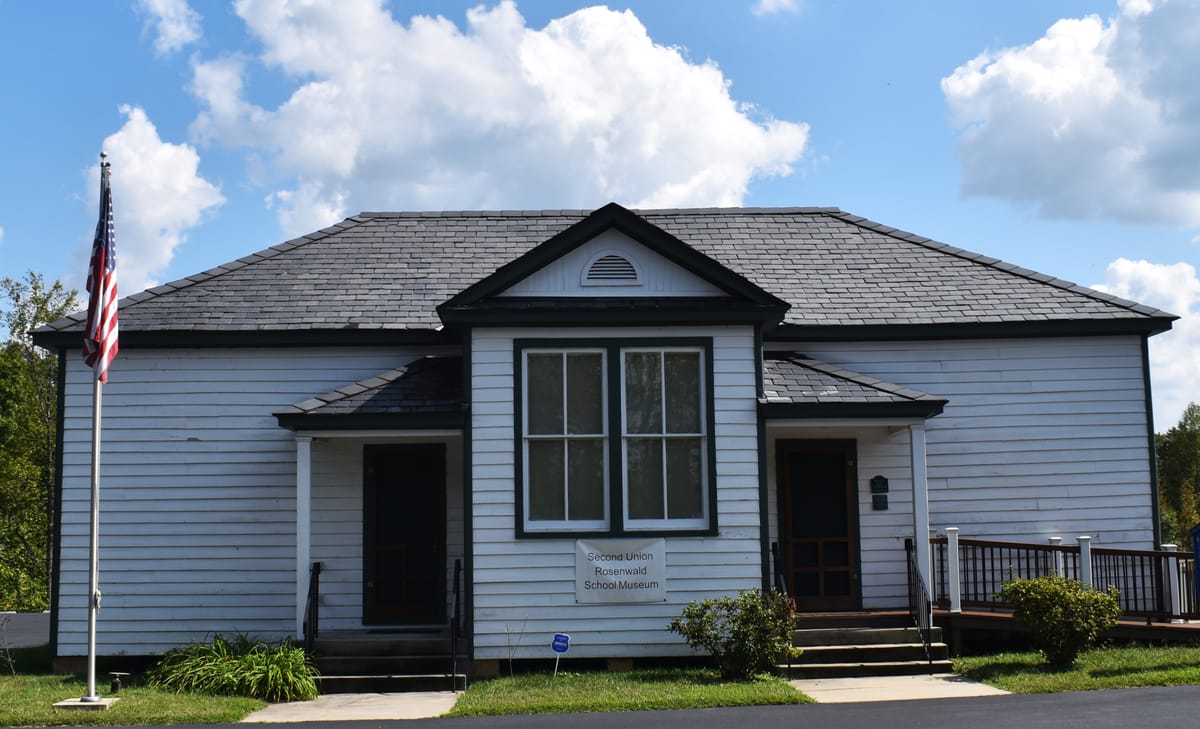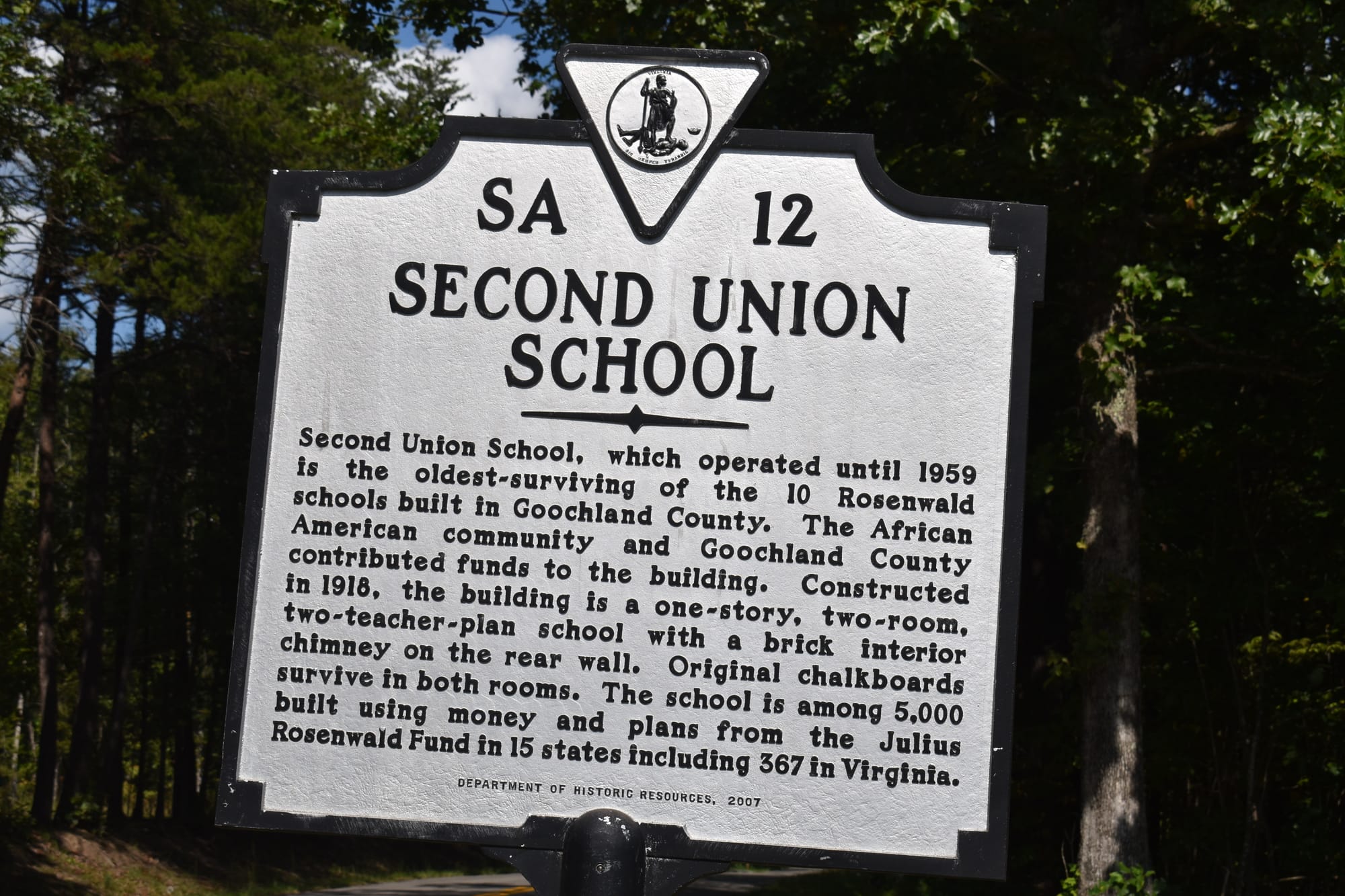Documentary premiere spotlights the role of Rosenwald Schools in educating Black students

On Tuesday night a new documentary, “Monuments With Blackboards: The Rosenwald Schools of Virginia,” will premiere at the Virginia Museum of History and Culture.
The documentary, which was screened by The Richmonder, provides a clear and powerful look into a largely overlooked part of Virginia history. Produced by Tom Lassiter, the film chronicles the effort to school African American children before the 1954 Brown v. Board of Education ruling that led to the end of legalized racial segregation in the schools of the United States.
At the turn of the century, African American children living in rural Virginia generally were generally schooled in decaying buildings which were ill-equipped for learning, and they were often taught by teachers who were not well trained. Going to school for these children often involved walks of several miles each way, if a school was even available.
This changed after a meeting in 1912 between Booker T. Washington and the philanthropist Julius Rosenwald, who set out to change the conditions under which African American children were learning, eventually building thousands of schools for Black students in 15 states. The Rosenwald Schools, as they are known, were often the first schools in Black communities and fostered improved education across the South.
Rosenwald partnered with Washington's Tuskegee Institute, and they formed an independent foundation to manage the school program. These funds were leveraged to persuade local school boards, controlled by white citizens, to join forces to build new schoolhouses. The plan also called for ongoing support from local school boards, including paying teachers and extending the school term.
Lassiter, the producer, is President of Longleaf Productions, a non-profit organization supported by major grants from Virginia Humanities and the Cook Foundation.
“The story is heard over and over again,” he said in an interview. “The schools still standing today are some of the most endangered structures in the country.”
This, in part, is what compelled Tom and fellow producer Jere Snyder to make the documentary. Lassiter has worked with Snyder for more than 20 years, creating video programs for corporate and non-profit clients. Monuments with Blackboards highlights the commitment, perseverance, and achievement of the Rosenwald alumni today.
“We went out and filmed the schools still standing,” Tom said. “We found people that way, asked locals in each area where the schools were still standing, and found leads through a list of Rosenwald schools compiled by the state.”

“Monuments With Blackboards” focuses on the rural school building program that began funding projects in Virginia in 1917. Between 1917 and 1932, Rosenwald funds helped build 382 schools and support buildings in 79 Virginia counties. The majority of these buildings conformed to smaller one- or two-teacher designs, though schools big enough to accommodate 10 and 11 teachers were built in Henrico and Prince Edward counties, respectively. The rural school building program’s involvement in Virginia reached its peak between 1923 and 1924, when 45 Rosenwald-assisted schools were constructed.
Because the rich history and scope of these schools are often an overlooked part of Virginia history, the number of Rosenwald schools that exist in Virginia today is not known. While some structures have been renovated and restored to community use (such as Rappahannock County‘s Scrabble School, which reopened in May 2009 as a senior center), many have been torn down, often without realizing their historic significance. In 2002, the National Trust for Historic Preservation placed all Rosenwald schools in the United States on its list of most endangered historic buildings.
The documentary includes film of the Virginia countryside with schoolhouses that are still standing, along with photographs of the schools (many of which have since been demolished) when they were operating and filled with children.
“Monuments with Blackboards” offers interviews with many scholars and historians, including Curtis Valentine, Director of Reinventing America’s Schools Project, Lucille Hudson, Rosenwald alumna and teacher/County Supervisor, Peter Ascoli, grandson of Julius Rosenwald, Muriel Miller Branch, Chairperson of Pine Grove Elementary Restoration Project, Dr. Brian Daugherty, Professor of History at VCU, and Frank L. Thornton, Curator of Virginia Randolph Museum, among many others.
Though historians have published books on the subject, including Mary S. Hoffschwelle’s important The Rosenwald Schools of the American South, the hope is that a documentary as powerful as “Monuments With Blackboards” will get these historic schools the attention they deserve, beginning in the Richmond community.
“These schools have been largely ignored for too long,” Lassiter said.
The premiere of Monuments With Blackboards is free to the public from 6-7 p.m. on Tuesday, Oct. 1 at the Virginia Museum of History and Culture. Producers Tom Lassiter and Jere Snyder will be in attendance for discussion after the film is screened.






